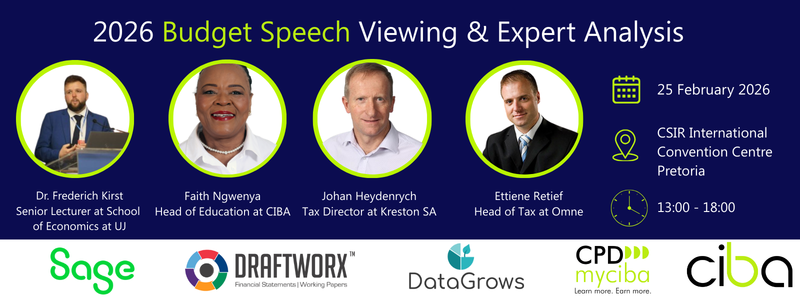Latest News
Trending Topics

Become a CIBA Member
Your first step towards a professional designation.
Become a CIBA Member to enjoy full access. Fill out the form to speak with a consultant or schedule a call to learn more before committing to membership. We're here to help.
Already a CIBA Member?
Use the discount code provided on your CIBA Member profile at checkout and receive 100% discount.
Not a CIBA Member?
Already a CIBA member?
Log in to get your discount code
Join Accounting Weekly
R250.00 FREE
Every month
100% Discount when you become a CIBA Member. Join now to claim your CPD Hours. Register here: https://accounts.myciba.org/register
✓ Step 1: Register as CIBA Member
✓ Step 2: Sign up to access premium resources
✓ Step 3: Apply your CIBA discount code for 100% off
















